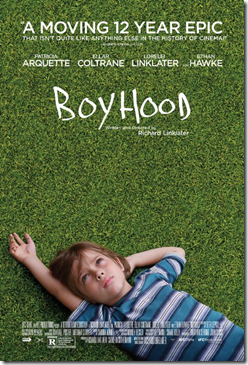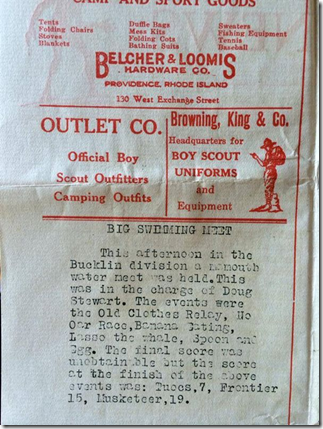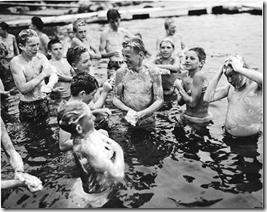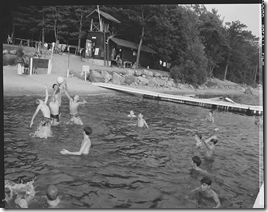Boyhood made all the difference for me.
/My friend came over last week and installed a faucet under my sink. This is not the first time I have asked him to help me with a repair. He once spent four long hours on a Friday night unclogging the same sink with me.
He has also repaired two lamps for my daughter, though both times, the repair required the replacing of a light bulb.
My friends can repair things. Build things. Diagnose problems. They can use tools. Identify tools. Repair tools.
I cannot. It often leaves me feeling like a fool.
I saw the movie Boyhood last night. It was an extraordinary film that brought back many memories from my boyhood. Not many good ones.
Part of my inability to fix and repair things is a result of an innate lack of visual-spatial acuity. A school psychologist once administered a new cognitive test on me in order to practice and became irate with me for “screwing around” and not trying my best.
I was trying my best. I was completing a section that required me to rotate, reverse, flip and otherwise manipulate shapes.
I had no idea what I was doing. I barely understood what she was asking me to do. I finished the subtest with the score equivalent to an average seven year-old child.
I was not surprised.
But it occurs to me after watching the film that an even greater reason for my inability to work with my hands was simply the way that I grew up. My father and mother divorced when I was a little boy, and my father quickly drifted out of my life entirely. My mother remarried, but my stepfather had little interest in raising me. He didn’t teach me to play sports. Didn’t teach me to fish or pitch a tent or even mow a lawn. Didn’t teach me to use tools.
I didn’t have a father putting a hammer into my hand and teaching me how to bang in a nail. I didn’t have someone explaining to me how things works. I spent most of my childhood on my own, figuring out things for myself.
Then I graduated from high school and began a decade of turmoil and struggle. I moved in with a friend attending college and worked 50-60 hours a week in order to survive. My parents never visited me or even called. Unless I went home to visit, I never heard from them.
Two years later, my stepfather divorced my mother.
When my friend graduated from college and moved to Connecticut, I was homeless. I lived in my car. Eventually, I was taken in by a family of Jehovah Witnesses, working 80-90 hours a week while awaiting trial for a crime I did not commit.
When I was finally found not guilty after almost two years, I moved to Connecticut, chasing my friend and a girl, and I quickly found my way to college. I attended school fulltime while working 40-50 hours a week managing restaurants and tutoring in order to make ends meet.
When I finally graduated from college with degrees in English and elementary education, I was 29 years old. I was starting my teaching career. For the first time in my life, I was not struggling to keep my head above water. Barely keeping food on the table.
I wasn’t until I was almost 30 years old that I had genuine stability in my life.
When was there time for me to learn to fix a car? Who was there to teach me? I grew up without an Internet. Without tools. Without an innate ability to see how things fit together.
I saw that boy in Boyhood, and in many ways, I saw myself. I watched a boy whose life was filled with transition, trauma, uncertainty, and solitude.
My friends make fun of me for not knowing how to make simple repairs. They tease me for requiring help with the most basic things. And when I ask a friend to repair a lamp that only requires a bulb change (twice), I deserve every one of their insults.
But I also know that I spent the first 30 years of my life just trying to keep my head above water. While most of my friends were off at college after high school, I was struggling at times to feed myself. There was a winter when my roommate and didn’t turn on the heat because we couldn’t afford it. I lived in my car. In a pantry. I spent a summer sleeping in a closet. There were many, many days spent cold, hungry, frightened, and alone.
The idea that I could’ve learned how to tune up my car or take apart kitchen sink is crazy.
For the past 15 years, there has been greater stability in my life. I have a home. A career. A family to support me. I haven’t had to work 80 hours a week or work full time while completing two college degree programs.
There has been time to learn the things I never learned.
But imagine being a 30 year-old man who has never used a socket wrench in this life. Never drilled a hole in plaster. Never built a single thing with his hands.
Yes, I could start learning, and to a degree, I have. There are things that I can do with my hands today that would’ve been unimaginable to me just ten years ago. Last week I repaired a door and a toilet seat in my house and was unreasonably proud of myself for my efforts.
But a person also reaches a deficit in learning that can seem insurmountable. The multitude of lessons missed over the years begin to pile up. They begin to create exponential deficits. Eventually the things that you can’t do become just as much a part of your identity as the things you can do. When you spent the first 30 years of your life as one person, it’s hard to envision yourself as another.
I listen to my friends talk about their childhoods with their fathers. I hear stories about how they followed their dads into basements to repair furnaces and plumbing. Crawled under cars to inspect exhaust systems. Built tree houses in the backyard. When I listen to them talk, it’s almost as if they are speaking a foreign language.
When they come to my house to help me, I try to watch. I ask questions. I want to learn. But I also know that I am attempting to mitigate decades of learning that was missed.
When my friend came over to install the new faucet, I was able to turn off the water in my house. I held the faucet steady while my friend worked underneath the sink. I handed him tools. I asked questions. I watched him solder a corroded pipe. I tried hard to learn while trying harder to stay out of his way and not waste his time.
In the end, I didn’t help very much. I learned a little. This is how it has always been for me. Ask a friend for help. Assist in any way I can. Avoid getting in the way. Try to learn as much as I can. Express my appreciation.
This is not the same as a father showing his son how to swing a golf club or change the oil in a car or build a tree house. It never will be.
I’ll keep asking for help. My friends will continue to tease me, and oftentimes, justifiably so. It’s okay. It’s who I am.
And I will continue to listen to them talk about fathers who taught them to dribble a basketball and coached their Little League teams and helped them buy their first car or showed them how to install a dishwasher. Sometimes I meet these men. These fathers who did their jobs. Stood by their sons. Taught them what they needed to know.
I shakes the hands of these fathers and stand in awe at the very idea of fathers and sons whose lives are connected and intertwined.
It’s something I have never known.
I hope my friends know how lucky they are.



